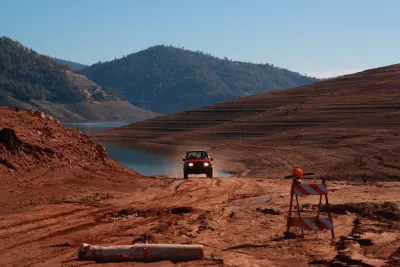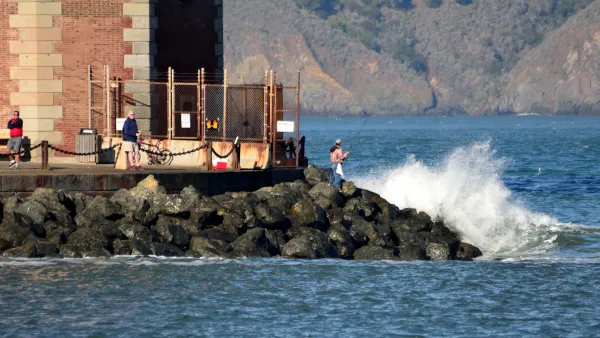State Senator Bob Wieckowski is working to help communities get the necessary tools to increase capacity for climate resilience.

The creation of the Integrated Climate Adaptation and Resiliency Program by the California State Legislature this year was one of major legislative victories on the adaptation and resilience side of climate change action. California has begun to assess how climate impacts will impact the state's water, infrastructure, agriculture, and coastal communities. In an exclusive interview with The Planning Report, State Senator Bob Wieckowski, chair of the California Senate Environmental Quality Committee, discusses the recently signed SB 246, which he authored. SB 246 addresses the challenges of coordinating regional and state efforts to integrate climate adaptation into planning. SB 246 created the state clearinghouse on best practices for adaptation strategies in the Governor's Office of Planning and Research and expands the existing Safeguarding California efforts.
In looking at the capacity of local governments, Sen. Wieckowski saw large disparities in how communities could prepare for climate impacts. Sen. Wieckowski worked with the Governor’s Office of Planning and Research to also incorporate local governments into the existing interagency coordination on climate adaptation, and share their work with the local government folks who were previously unaware. Sen. Wieckowski explained the equity component to making all communities aware of climate adaptation work, stating:
“Let’s say we want to address sea-level rise, which is a significant cause of concern for communities in the Bay Area. If some well-to-do cities decided on their own to raise the money to create levees to protect their property values, the water would end up simply being redirected onto poorer communities. That’s why we need collaboration and coordination at the state level, and why we need to bring in scientists to determine the best efforts cities can undertake.”
Sen. Wieckowski also spoke to the needs of local governments going forward, which he frankly said is funding and designated money for local adaptation. In his interview, the Senator also discussed his work to remove barriers to building accessory dwelling units in hopes of providing immediate relief to California’s historic housing shortage, assess the Legislature’s potential next steps on refining the cap-and-trade program, and project how the state will continue to enforce sustainable statewide water policies.
Read more about Senator Wieckowski’s plan for increasing climate adaptation and resilience in The Planning Report.
FULL STORY: Sen. Bob Wieckowski Successfully Integrating Climate Adaptation Into California Law and Planning

Analysis: Cybertruck Fatality Rate Far Exceeds That of Ford Pinto
The Tesla Cybertruck was recalled seven times last year.

National Parks Layoffs Will Cause Communities to Lose Billions
Thousands of essential park workers were laid off this week, just before the busy spring break season.

Retro-silient?: America’s First “Eco-burb,” The Woodlands Turns 50
A master-planned community north of Houston offers lessons on green infrastructure and resilient design, but falls short of its founder’s lofty affordability and walkability goals.

Test News Post 1
This is a summary

Analysis: Cybertruck Fatality Rate Far Exceeds That of Ford Pinto
The Tesla Cybertruck was recalled seven times last year.

Test News Headline 46
Test for the image on the front page.
Urban Design for Planners 1: Software Tools
This six-course series explores essential urban design concepts using open source software and equips planners with the tools they need to participate fully in the urban design process.
Planning for Universal Design
Learn the tools for implementing Universal Design in planning regulations.
EMC Planning Group, Inc.
Planetizen
Planetizen
Mpact (formerly Rail~Volution)
Great Falls Development Authority, Inc.
HUDs Office of Policy Development and Research
NYU Wagner Graduate School of Public Service




























